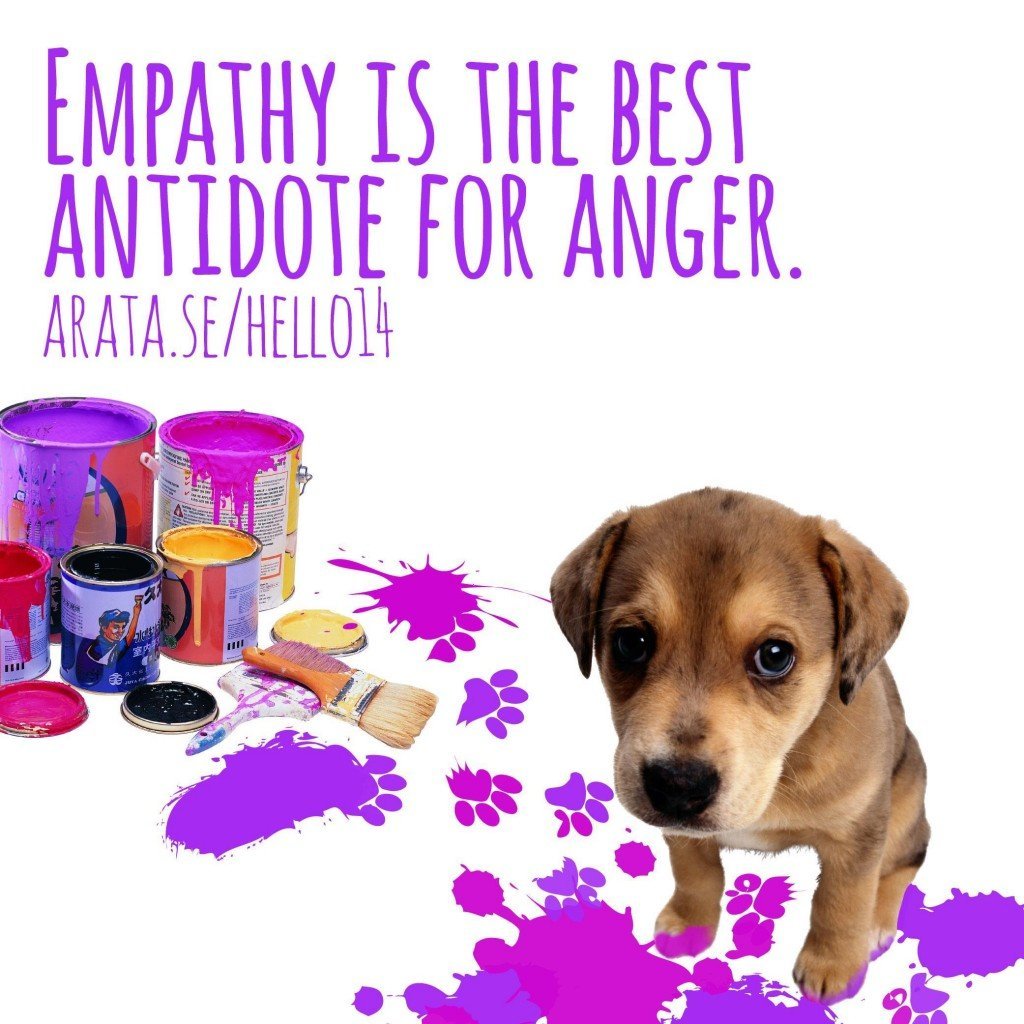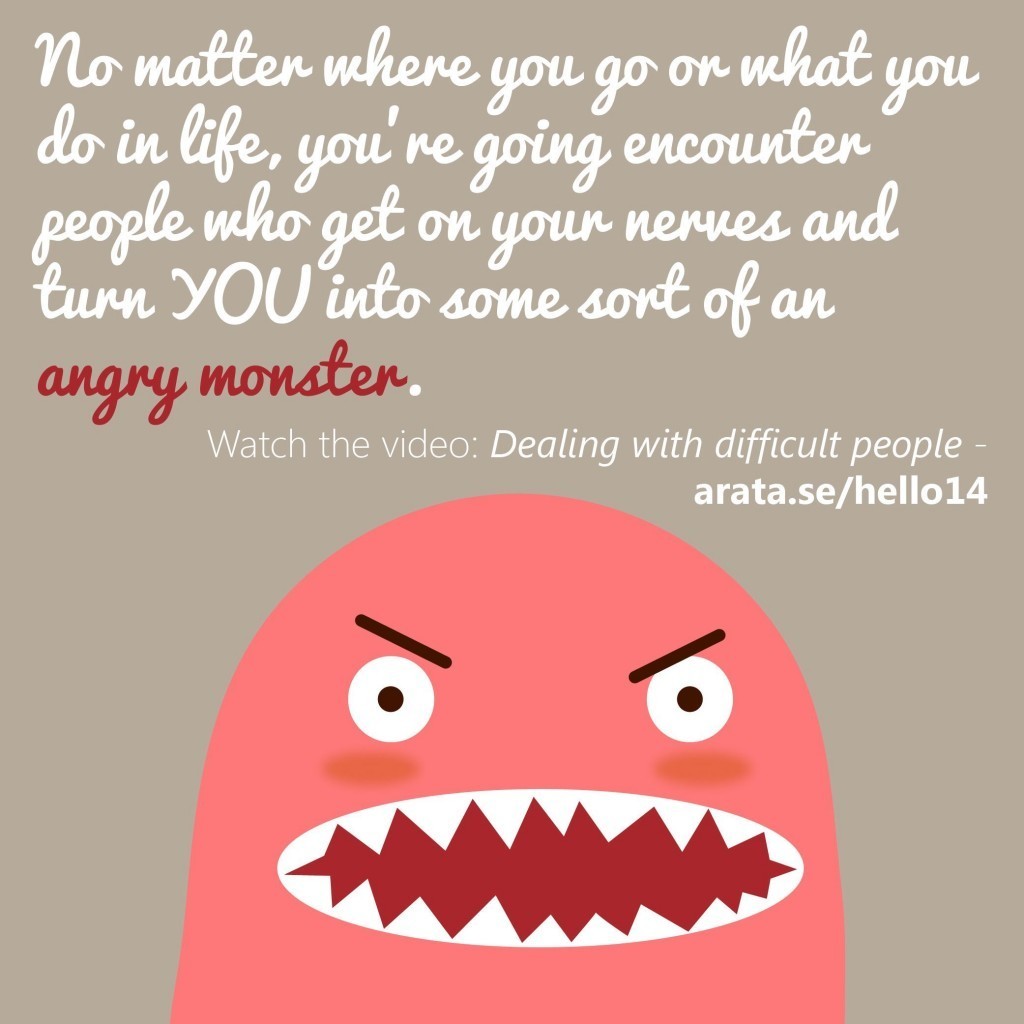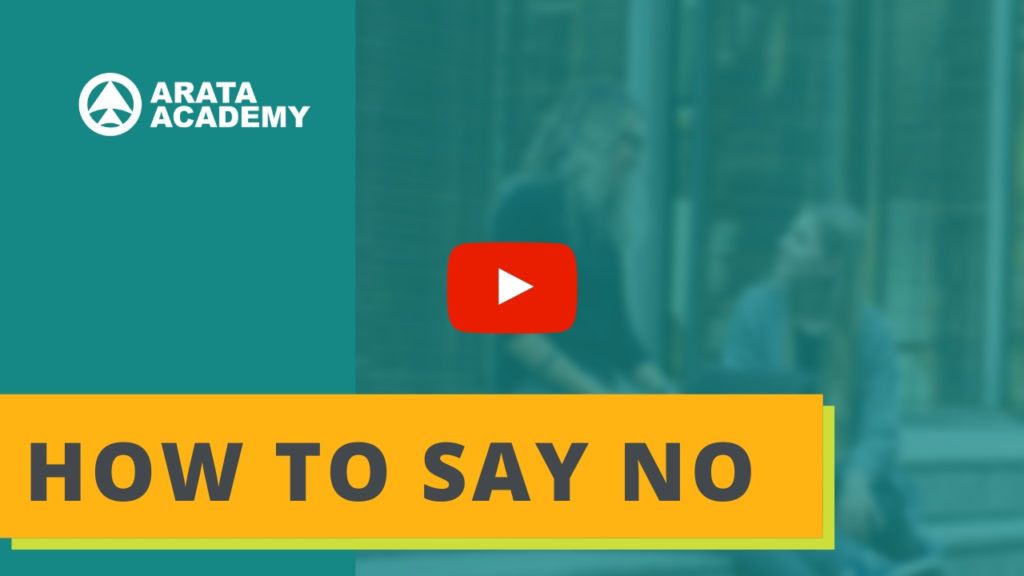Hello! Seiiti Arata. Here’s the bad news: no matter where you go or what you do in life, you’re going encounter people who get on your nerves and turn YOU into some sort of angry monster.
Our dealings with these people tend to be some of the most infuriating and memorable experiences, and that is why this video is important. The good news is that you can learn better ways to deal with difficult people.
1. Develop empathy.
Empathy is the best antidote for anger. People say we have empathy when we see with the eyes of the other, listen with the ears of the other, feel with the heart of the other. Can you put yourself in the other person’s position? To do that, you need to pay attention to them in a different way, without labels. You have to be in the present moment.

You never know what’s going on in the minds and in the lives of the people around you. They may be having the worst day in the world and are just too frustrated or upset to deal with anything logically, thus they are difficult to handle. Maybe you are trying to help them with a task and unintentionally make them feel stupid or incapable.
It’s impossible to avoid situations like these, because we live in a world where everyone is dealing with something. That’s not to say that you have to sit there and let them yell at you. Just don’t take things too personally, and try to understand the other person’s perspective.
2. Make sure they understand you.
Good communication requires clear understanding. The problems emerge from misunderstandings. Maybe there are language barriers, cultural aspects or different levels of expertise—never assume that it is all obvious and self-explanatory.
Take care of the words and also voice tone you choose when you communicate; this way you know you’ve done your best to be respectful.

3. Don’t assume the mistake is theirs.
Never assume that you are right and they are wrong. Situations are complex, and if you use empathy, you can see that the other person is certain that they are doing the right thing. Keep this in mind as you work together on a solution that does not put them in a defensive position.
Even in a situation where there is no question that they are in fact wrong, don’t assume they are a total idiot. Perhaps it’s their first day on the job, or maybe they just finished doing a task that was emotionally challenging for them, and they’re still dealing with it. See the human being in front of you, and ask yourself how you can cooperate instead of getting angry.
4. It’s okay if you can’t stay calm all the time.
It’s important to remember that you are human, too. Resistance may not be the best answer when you are feeling angry. Repressing the rage could make things worse, because many people put on a fake smile and pretend everything is fine. Until the day they explode and surprise everyone around them.
If you get angry, do your best to see yourself from another angle, as an observer. This will help you to restore your balance, calm down and be able to apologize to the other person. Then you can connect with them in an effective manner.
5. Relinquish control.
Maybe you’re in a situation where you wish things were different. The current reality does not please you. You silently wish people would be different or the situation would be changed with a magic wand.
When we stop resisting the reality and take a breath, we are able to remember that the world is not in our control. Even with our best efforts, we cannot control the situation all the time, and that includes, especially, the other people in the situation.
Dealing with frustrating people is hard to do, there’s no question, but it is part of life, and if we resist, it will become even harder.
When we understand that we are dealing with other human beings who have their own lives, emotions and stories, we can get back the empathy necessary to connect and collaborate.
Without empathy, we tend to look at them as numbers, as objects that we would like to perform in a different way. As broken pieces that we would like to replace or even destroy.
We will also recognize our humanity—how likely we are to feel disappointed or angry. Observing ourselves and our reactions is a powerful tactic to strengthen our presence and make conscious choices. I would invite you to watch the video Be in the Present Moment https://arata.se/hello05

